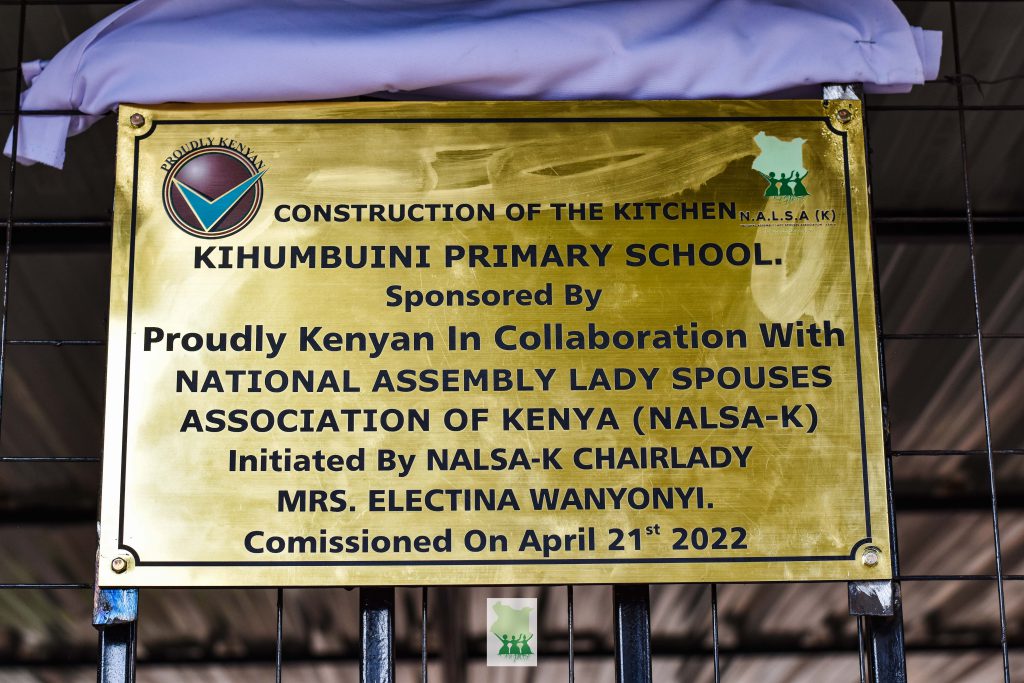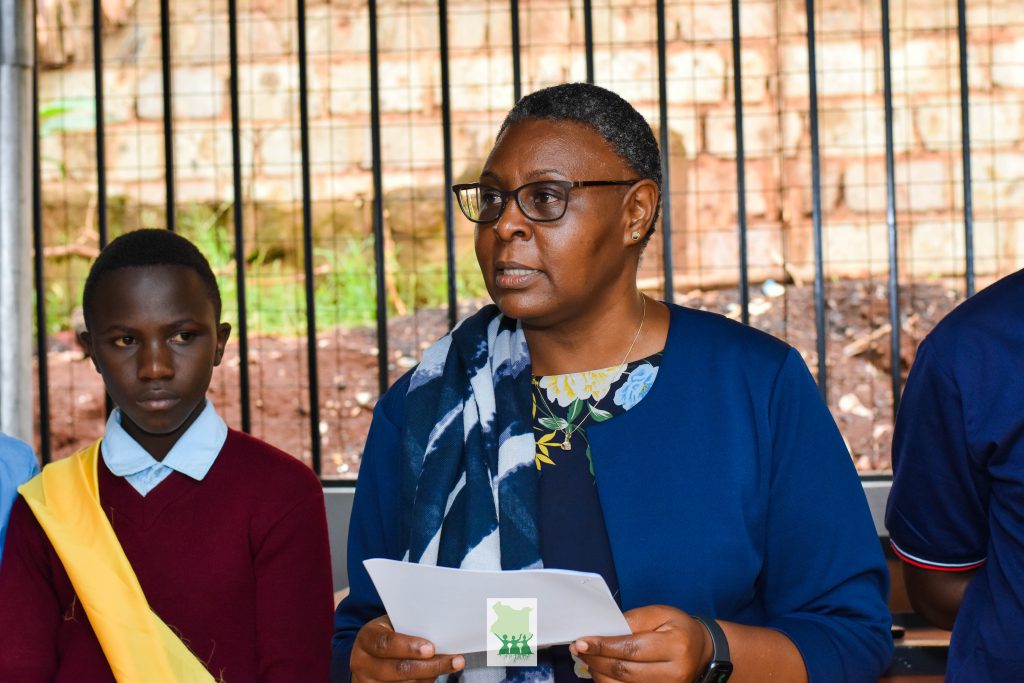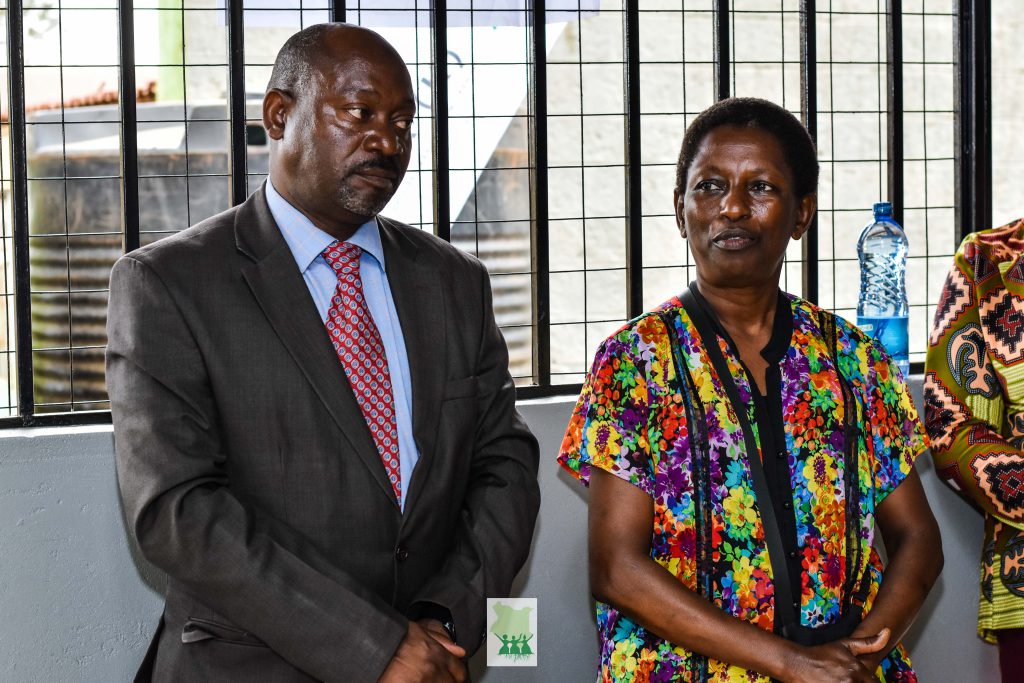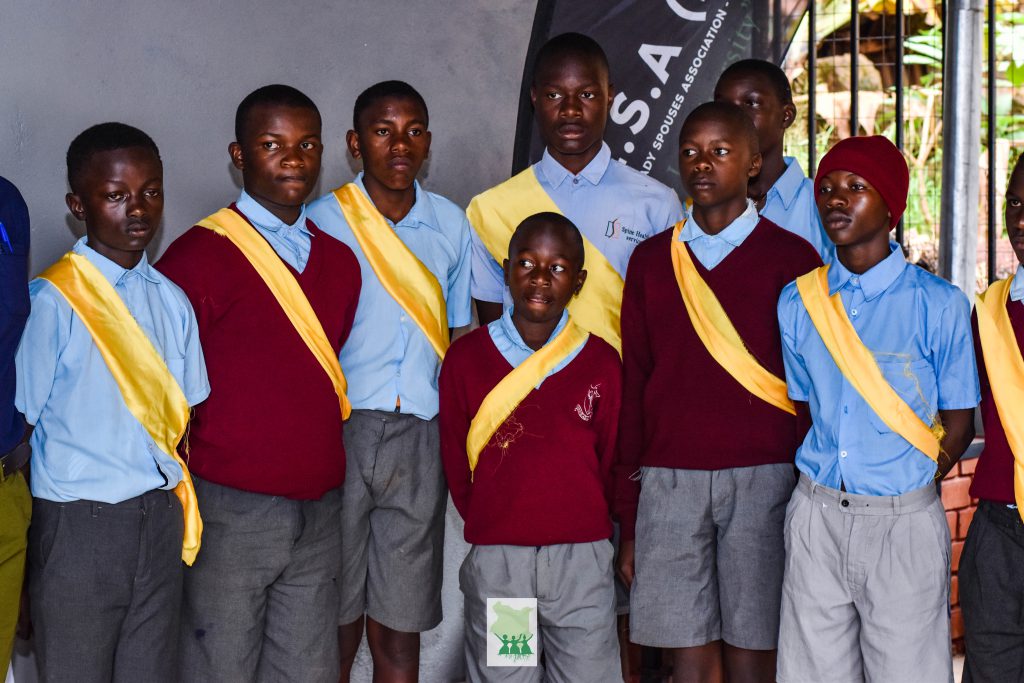NALSA(K) Chairperson Raising Old Kihumbuini to New Heights.

The national government introduced Free Primary Education in 2003, but
unfortunately, it does not cover school feeding. Child hunger, therefore, remains a
huge challenge in regular school attendance for students, with the Ministry of
Education estimating that in 2018 more than 850,000 children were out of school.
For those who make it to school, hunger impedes their ability to learn, retain
knowledge and participate in class.
While this may seem like a problem affecting rural areas only, students in cities –
particularly those in low-income areas – are also affected. The World Food
Programme estimates that malnutrition rates are unacceptably high in children, with
29% of kids in rural areas and 20% in urban centres stunted. At Old Kihumbuini
Primary School in Kangemi, Mr Hassan Tala, the headteacher, shared how the
students and their parents look forward to the school meal to keep them going.
“Majority of the parents in this school are low-income earners determined that their
children should receive a quality education. The mothers are mostly maids, while the
fathers are mostly watchmen. Sometimes they cannot afford to put food on the table
at home, so they rely on the one meal the children get in school,” he explained. That
meal is hot porridge, courtesy of the Asian community, and it is served at break time.
The challenges relating to child hunger are some of the things the NALSA(K) Chair,
Mrs Electina Wanyonyi, is trying to address with this project.
On April 21, 2022, she launched a new kitchen at Old Kihumbuini Primary School. In
her speech, Mrs Wanyonyi noted that people often tend to focus on the school meals
without paying attention to the kitchens in which food is prepared, even though they
are just as vital. She remarked, “You can’t provide healthy meals if you don’t have
adequate storage facilities or enough space to prepare the food.”
The Board of Management members and the teachers present echoed her
sentiments. They shared instances of how diseases were rampant among the
student body and the staff due to the state of the old kitchen. The Board’s Chair, Mr Obiero, spoke of how teachers would often refuse to be posted at the school or fail to report after their first day.

Mr Tala humorously remarked that the staff would ensure Ministry of Education
officials and other visitors to the school never set foot in site of the old kitchen out of
embarrassment of its state. “I’ve been sending photos to other headteachers in the
city to show off our new facilities,” he joked.
Old Kihumbuini was founded as Kihumbuni Primary School in 1964 on land donated
by the ACK church. The intention was for the school to serve 300-400 students.
However, within five years, the school’s population had nearly tripled, and the
government decided to split the school in two. Hence the original school was
renamed Old Kihumbuini, while New Kihumbuni was established right opposite it.
Mr Tala noted that projects such as Mrs Wanyonyi’s kitchen renovation and other
rehabilitation projects carried out by Hon. Tim Wanyonyi during his tenure as MP of
Westlands have gone a long way in improving the school’s image. The world ‘old’
made people look down on the school. He said, “Now we can tell people we are no
longer Old Kihumbuini, but Modern Kihumbuini.”
This project is one of a series of projects being carried out by NALSA(K) members
across the country and sponsored by Proudly Kenyan. Tiffany Muema, Proudly
Kenyan’s organising secretary, remarked that the importance of the new, modern
kitchen is that it can comfortably serve the entire staff and student population. She
added that the new kitchen can now facilitate requests for additional resources such
as foodstuff.
Mrs Wanyonyi, who representatives of the Mama Twende table banking groups had
accompanied, acknowledged that the new kitchen may not wholly solve the school’s
food problems but that it was a start. She challenged the women to commit to
donating food for at least a term or even a year. The Mama Twende groups had
supplemented the NALSA(K) Chair’s projects by donating storybooks to the public
primary schools in the constituency on International Women’s Day.

We got good results this year, and now what you’ve done to us will enhance our
performance to greater heights,” Mrs Rose Gama, the deputy headteacher, said. She
called the project a blessing. The school’s mean KCPE results improved from 237
marks in 2020 to 241 in the most recent exams. The top-performing candidate
recorded 397 marks.
Mrs Wanyonyi wrapped up by addressing the student representatives who had
gathered for the event. “We have done our best to try and create a good
environment for you. All I ask is that you, in turn, do your best,” she encouraged
them.
One of the reasons NALSA(K) was formed is so that the members can support their
spouses in their duties as members of parliament. With this project and the
refurbishment of classrooms at Kangemi Primary School, the NALSA(K) chair has
risen to the occasion of supplementing the work done to promote education in
Westlands constituency. She expressed her gratitude to Proudly Kenyan, without
whom she said the projects wouldn’t have happened.

By Sophia Wanyonyi.
Photography by Julia Laval.
